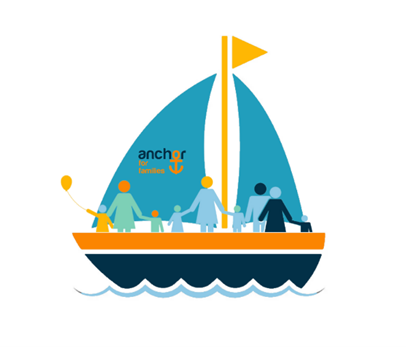We will continue to invest in the Anchor Early Action Project to help to make positive changes to the lives of families in Shetland who are struggling.
The Anchor Project will conclude in March 2023 as planned. The learning from the project has resulted in ‘Anchor for Families’, supported by Whole Family Wellbeing Funding from the Scottish Government. A team is now successfully embedded across Shetland schools and provides a whole family support approach to support children, young people and families.
The Year Three Evaluation Report noted that the Anchor Project has evolved in its lifetime and that “the COVID pandemic, swiftly followed by a cost of living crisis were significant and unforeseen events which have impacted on families. The project has adapted to its own learning and in response to needs which have arisen due to the crises.”
Over the duration of the Anchor Project, 67 different families have benefitted from the family-led planning and support service. The report noted that there is reassuring consistency in the evaluation findings on the impact of the project on families across all three evaluations.
Findings show that people supported by the Anchor Project gained reassurance from being listened to, realised that improving their situation is possible and/or feel supported to make a change. In summary, Anchor supports confidence to implement change resulting in positive outcomes.
The Year Three report also noted that much of the project effort in 2022 focused on creating Anchor for Families and providing support to families during the cost of living crisis. However, this effort inevitably came at a cost to other activity and some of those consulted as part of the third evaluation reported a reduction in effort at a partnership and strategic level – activity that was highly praised in the first and second evaluation. Some consultees still believe there is work to be done around the Anchor Project’s impact on wider system change – how can learning from the Anchor Project be used to influence service design in established services and how can system change and the introduction of new services such as Anchor for Families be managed in a more cohesive manner?
This has led to areas where feedback has been turned into recommendations.
Anchor has also prompted an independent study, to be undertaken by Robert Gordon University and funded by the Scottish Government, to learn from the work done in Shetland and gather evidence about experiences of poverty in rural and urban areas.
The study will look to understand the demand for support, its key outcomes, opportunities and barriers to delivery since Anchor began in 2018. It will explore how Anchor wrapped support from existing frontline services around the needs of families to directly tackle poverty and inequality, while avoiding any associated stigma. Aspirations for its sustainability and scalability in other island or remote and rural contexts in Scotland will also be considered.
The Scottish Government want to gather evidence about experiences of poverty in rural and urban areas, and the design and delivery of holistic services based on the needs of the community they serve.

